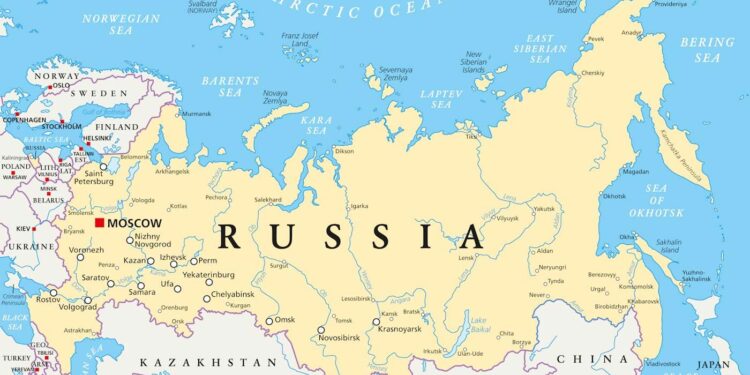Russian authorities have formally requested the extradition of Moldovan oligarch Vladimir Plahotniuc following his recent arrest in Greece. Known for his controversial role in Moldova’s political and economic landscape, Plahotniuc’s detention has sparked renewed attention amid complex international legal proceedings. This development adds a new dimension to the ongoing tensions between Russia, Moldova, and other European actors, as officials weigh the implications of the extradition request.
Russia Pursues Extradition of Moldovan Oligarch Plahotniuc Following Greece Arrest
Following the recent apprehension of Vlad Plahotniuc in Greece, Russian authorities have formally submitted an extradition request. The Moldovan oligarch, known for his influential role in the country’s political and economic arenas, is facing multiple allegations in Russia, including charges related to financial misconduct and abuse of power. Moscow’s legal team has emphasized the urgency of the matter, stressing Plahotniuc’s alleged involvement in activities that undermine Russian national security.
Key points of Russia’s extradition claim include:
- Allegations of embezzlement exceeding USD 50 million
- Accusations of orchestrating complex money laundering schemes
- Charges linked to destabilizing impacts on Russian financial institutions
- Legal pursuit initiated through Interpol red notice mechanisms
| Charge | Details | Status |
|---|---|---|
| Financial Fraud | Misappropriation of state funds | Under Investigation |
| Money Laundering | Use of offshore accounts | Active Case |
| National Security Threat | Undermining banking sector integrity | Alleged |
Legal and Political Implications of Plahotniuc’s Detention for Moldova and Russia
The detention of Vlad Plahotniuc marks a watershed moment in the intricate legal and political relations between Moldova and Russia. As Moldova grapples with the implications of a high-profile oligarch’s arrest on foreign soil, the extradition request from Russia intensifies existing tensions. Moldovan authorities face a delicate balancing act: upholding rule of law and judicial independence, while navigating Moscow’s longstanding influence in the region. This case exposes vulnerabilities in Moldova’s legal framework, challenging its commitment to transparency and sovereignty amid external pressure.
On the Russian front, Plahotniuc’s detention represents an opportunity to demonstrate assertiveness in pursuing fugitives deemed threats to its interests. However, it also stirs political controversy given Plahotniuc’s rumored connections and the opaque nature of the charges. The extradition battle underscores several critical issues:
- Diplomatic leverage: Russia’s request may serve as a strategic tool to influence Moldova’s political landscape and deter Western integration efforts.
- Legal precedents: Outcomes here could redefine bilateral extradition agreements and judicial cooperation.
- Public perception: Moldovan citizens watch closely, weighing questions of justice against fears of political manipulation.
| Aspect | Moldova’s Position | Russia’s Agenda |
|---|---|---|
| Judicial Integrity | Prioritizing independent review | Pressure for expedited extradition |
| Political Stability | Risk of destabilization | Maintaining regional influence |
| International Relations | Seeking Western support | Reasserting control in former Soviet space |
Experts Urge Transparent Judicial Process and International Cooperation in Extradition Case
Legal experts emphasize the critical need for a transparent judicial process to uphold the principles of justice amid the high-profile extradition request of the Moldovan oligarch. Transparency, they argue, will not only protect the rights of the accused but also reinforce international confidence in the handling of politically sensitive cases. Observers point to the importance of open court proceedings and accessible documentation that clarify the legal grounds of the accusations and the fairness of the trial process.
In addition, specialists call for enhanced international cooperation between judicial authorities in Russia, Greece, and Moldova. Effective collaboration is seen as essential to navigate the complex legal frameworks and political layers involved, ensuring that extradition procedures are conducted smoothly and in line with international human rights standards. Key measures recommended include:
- Establishment of a joint legal task force
- Regular information exchange protocols
- Timely resolution of legal ambiguities
- Protection of due process rights
| Country | Role in Extradition | Key Challenge |
|---|---|---|
| Russia | Requesting state | Ensuring evidence sufficiency |
| Greece | Detaining authority | Balancing legal obligations |
| Moldova | Origin state | Political neutrality concerns |
Closing Remarks
As the legal proceedings continue, the extradition request underscores the broader geopolitical tensions surrounding Moldova’s business and political elite. Observers will be closely monitoring developments in Greece, where judicial decisions could have significant implications for Russia-Moldova relations and the regional landscape. Further updates are expected as authorities deliberate on the case.
















